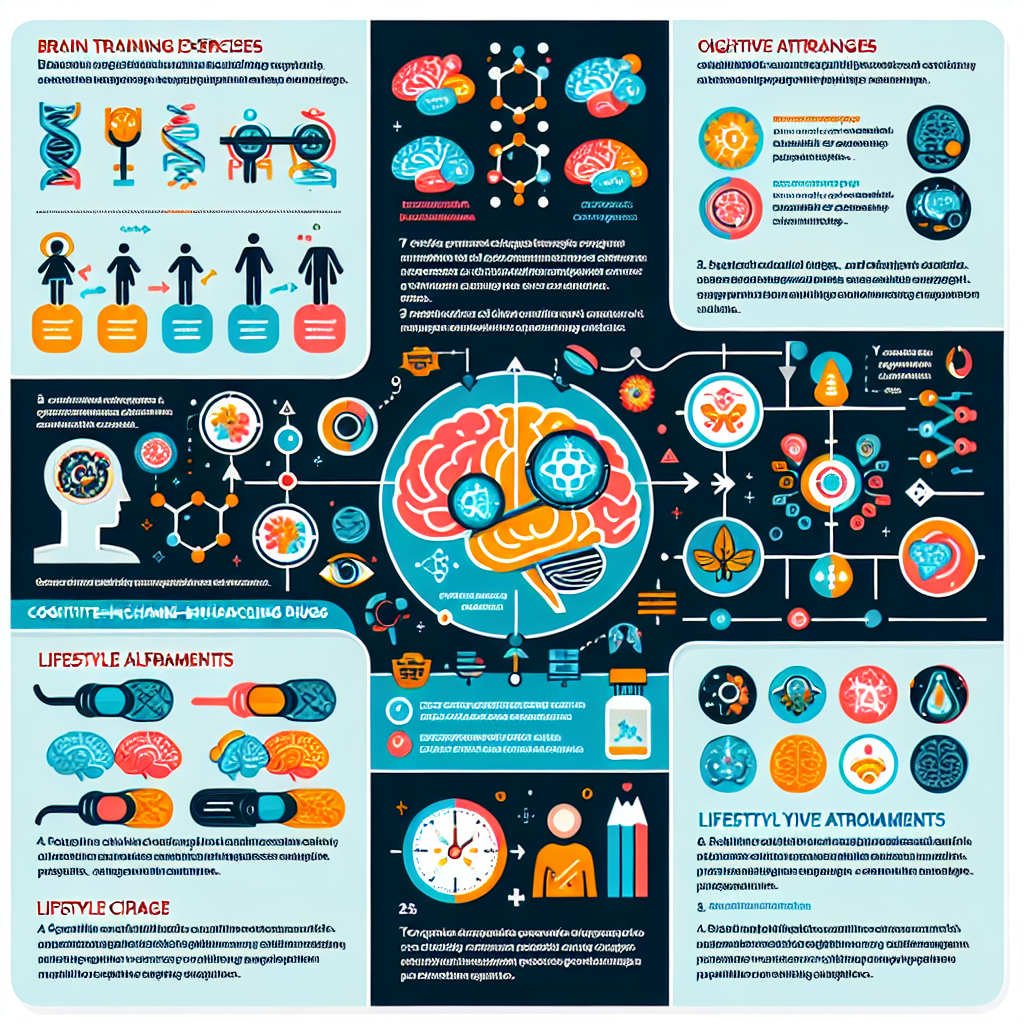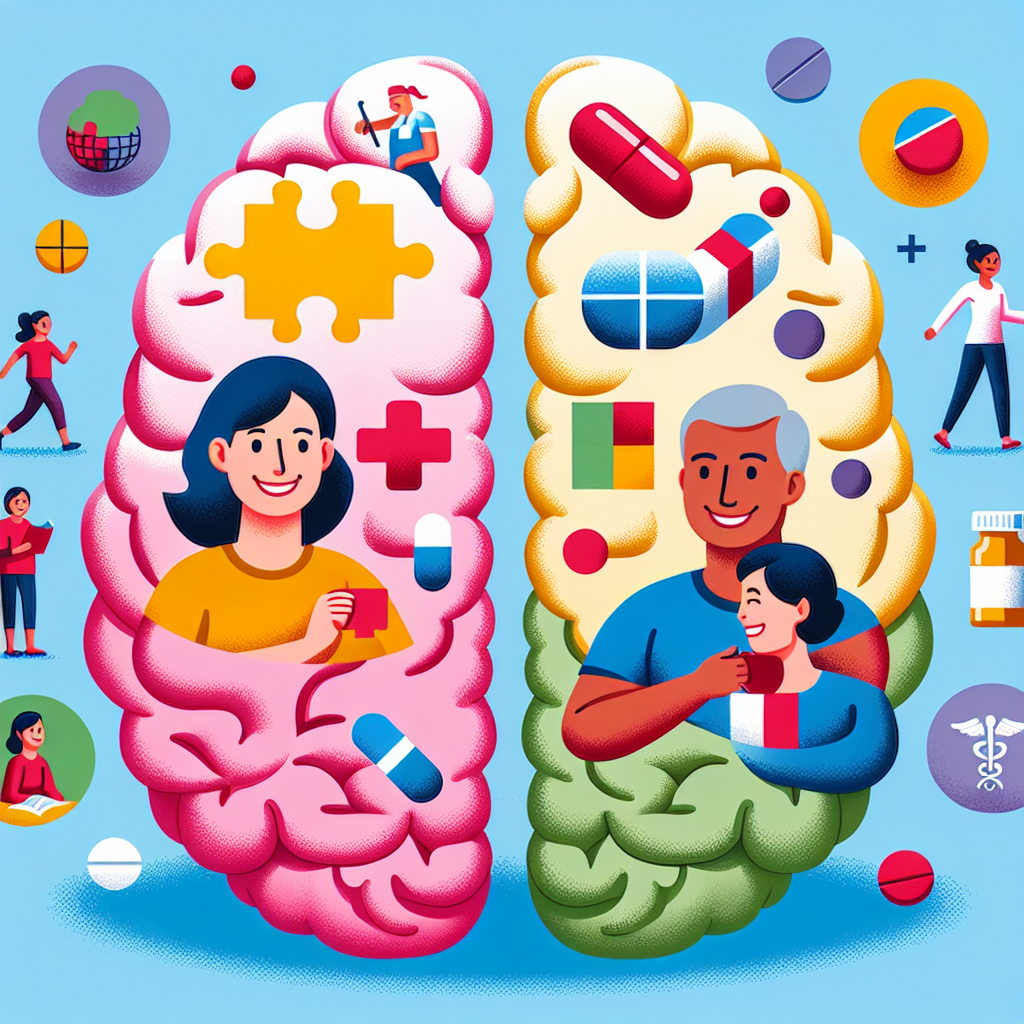How Do Brain Training Exercises Compare To Other Methods Of Improving Cognitive Functions, Such As Medication Or Lifestyle Changes?
The mind is a fascinating entity and enhancing its capabilities has always intrigued mankind. “How Do Brain Training Exercises Compare To Other Methods Of Improving cognitive functions, Such As Medication Or Lifestyle Changes?” embarks on a captivating quest to explore different avenues of boosting brainpower. This exploration will guide you through various approaches including nerve-stimulating brain training exercises to habit makeover and medical interventions. It will highlight the effectiveness, benefits, and detriments of each method, giving you comprehensive insights to make informed decisions on your cognitive wellness journey. Get ready to discover ways to sharpen your thinking skills, memory, and overall brain performance.

Understanding Cognitive Functions
Defining cognitive functions
Cognitive functions encompass various mental capabilities that guide our interactions with the world we live in. They refer to the brain-based activities you use to understand, process, remember, and decide things. These functions are pivotal in shaping your behavior, thoughts, and emotions. Key examples of cognitive functions include perception, attention, memory, language skills, problem-solving, and executive functions.
Factors impacting cognitive functions
Several intrinsic and extrinsic factors impact cognitive functions. Intrinsic factors include genetic makeup and age. Cognitive functions naturally decline as you age due to neurochemical imbalances and structural changes in the brain. External factors encompass lifestyle habits like the amount and quality of sleep, nutrition, physical activity, social interaction, mental stimulation, alcohol, and drug use. Chronic stress, depression, and anxiety can also hinder cognitive efficiency.
Measuring cognitive functions
Assessing cognitive functions is a complex process. Psychologists typically use standardized tests and tools to evaluate different domains of cognitive functioning. These may include memory tests, attention spans, reaction times, language skills, and reasoning abilities. These assessments can identify cognitive impairments and track cognitive changes over time.
Brain Training Exercises: What are They?
Understanding the concept of brain training
Brain training involves activities or games designed to improve and maintain cognitive abilities. The principle is akin to working out at a gym; just as physical exercises strengthen the body, brain exercises can strengthen the mind. These exercises can be simple puzzles, memory games, math problems, or complicated software that target specific cognitive functions.
Different types of brain training exercises
brain training exercises come in various forms, targeting different cognitive abilities. Memory training programs may involve recalling sequences or locations. Executive function training can include tasks requiring multi-tasking, decision making, or logical reasoning. Other exercises focus on improving attention, reaction time, or visual-spatial skills.
Popular brain training applications and programs
Many brain training programs and apps are available today. They offer a structured, game-like approach to cognitive training. For instance, Lumosity and BrainHQ are popular applications that offer brain training games designed by neuroscientists. While they may not be a cure-all solution, regular use can lead to improvements in the targeted cognitive domains.
Impact of Brain Training on Cognitive Functions
Research supporting brain training
Several research studies support the efficacy of brain training for improving cognitive performance. They demonstrate that regular mental workouts can enhance brain plasticity, leading to better memory, attention span, and problem-solving abilities. Brain training may also delay cognitive decline associated with aging, helping individuals maintain their cognitive health for longer.
Benefits of regular brain training exercises
Regular brain training exercises offer various benefits. They can help strengthen memory, increase attention span, and improve problem-solving skills. In addition, brain training can also slow age-related cognitive decline and may help reduce the risk of developing cognitive impairment or dementia.
Limitations of brain training
While brain training does offer benefits, it’s important to recognize its limitations. Improvements in cognitive abilities are often domain-specific – getting better at a specific task doesn’t necessarily translate into overall cognitive enhancement. Moreover, the extent of improvement varies among individuals. brain training is a tool, not a magic solution, and should be used in conjunction with other lifestyle modifications.

Medications for Enhancing Cognitive Functions
Role of medication in cognitive enhancement
Medication can play a significant role in cognitive enhancement, especially in managing neurodegenerative disorders like Alzheimer’s disease. These drugs work by modulating brain chemistries, primarily focusing on neurotransmitters linked to cognition and memory. However, the use of medication for cognitive enhancement is not limited to medical scenarios – some people use cognitive-enhancing drugs or “smart pills” to improve focus, memory, or mental agility.
Commonly used cognitive enhancing drugs
Common cognitive-enhancing drugs include stimulants like Ritalin and Adderall, typically used to treat attention deficit disorders. Another group, known as nootropics, includes substances that can improve mental agility, including caffeine and modafinil. Some Alzheimer’s drugs like donepezil are also used off-label for cognitive enhancement.
Pros and cons of using medication
Medication for cognitive enhancement can be a double-edged sword. On one hand, they can provide a significant boost in focus, memory, and mental agility. On the other hand, these drugs come with side effects like sleep disturbances, appetite suppression, mood swings, and in extreme cases, dependency or addiction.
Effectiveness of Medications on Cognitive Functions
Studies on the effectiveness of medication
Several studies address the effectiveness of cognitive-enhancing medications. While these drugs can show promising results in some cases, they often come with limitations. For instance, the influence of stimulants on cognitive performance tends to be modest, and the effects of nootropics can vary widely among individuals.
Short term vs long term effects of medication
While some cognitive-enhancing drugs can provide a quick boost to cognitive performance, their long-term effects are not well understood. Several drugs, especially stimulants, have shown diminished effects over time. Moreover, chronic usage can lead to undesirable side effects or even dependence.
Potential risks and side effects of cognitive enhancing drugs
Depending on the drug, cognitive enhancers can have a variety of side effects like sleep disturbances, excessive nervousness, appetite suppression, and mood changes. They can also pose serious risks like heart problems, psychotic episodes, and dependency in severe cases.
Lifestyle Modifications to Improve Cognitive Functions
Impact of nutrition, exercise, and sleep on cognitive functions
Your lifestyle habits have a substantial impact on your cognitive functions. A nutritious diet, regular physical exercise, and adequate sleep are essential for maintaining cognitive health. Balanced nutrition supplies the necessary nutrients for the brain, physical activity promotes neurogenesis, and sleep consolidates memory while flushing out neurotoxic waste.
Role of mental well-being and stress management
Mental well-being is crucial for cognitive functions. Chronic stress, anxiety, or depression can impair cognitive performance over time. Hence, managing stress and maintaining emotional well-being through relaxation techniques, mindfulness practices, or therapy is important for optimal cognitive health.
Potential benefits and challenges of lifestyle changes
Lifestyle modifications can offer far-reaching benefits, extending beyond cognitive health. They can improve cardiovascular health, boost mood, increase longevity, and enhance the quality of life. However, making sustained lifestyle changes requires commitment, discipline, and often, radical changes to daily routines, which can be challenging for many.
How Lifestyle Changes Affect Cognitive Functions
Research supporting lifestyle changes
Numerous studies support the benefits of lifestyle changes for cognitive health. Balanced diets rich in antioxidants and omega-3 fatty acids, regular physical activity, adequate sleep, and reduced stress have been linked to better cognitive performance and lower risk of cognitive decline or dementia.
Long term effects of lifestyle modifications
Lifestyle changes offer long-term benefits for cognitive health. They enhance the brain’s resilience to stress, promote neural plasticity, and can slow the progression of age-related cognitive decline. In contrast to drugs or brain training, lifestyle modifications can positively impact all aspects of cognitive functioning.
Barriers to implementing lifestyle changes
Despite the benefits, implementing lifestyle changes is not always easy. It requires long-term commitment, self-discipline, and often a radical alteration in daily routines. Some may find it difficult to overcome these challenges due to lack of time, lack of motivation, or existing habits.
Comparing Brain Training, Medication and Lifestyle Changes
Efficacy of each method
When comparing brain training, medication, and lifestyle changes, it’s important to note that each has its strengths and limitations. Brain training can improve specific cognitive domains, but the improvements may not generalize to other tasks. Medication can offer quick but often transient benefits, while lifestyle changes provide broader and more sustained benefits but take time and discipline.
Cost-effectiveness comparison
In terms of cost-effectiveness, lifestyle changes – which generally involve changes in diet, exercise, and sleep habits – are usually the most cost-effective. Brain training apps come with subscription costs, and cognitive-enhancing drugs can be expensive. All things considered, a combination of all three – targeted brain training, healthy lifestyle, and medication (if necessary)– probably offers the best return on investment.
Level of commitment and discipline required for each method
Each method requires different levels of commitment and discipline. Medication simply requires you to remember to take the drug, while brain training requires regular participation in training tasks. Lifestyle changes involve the greatest degree of discipline, often requiring substantial adjustments to daily routines.
Individual Considerations when Choosing a Method
Dependence on individual goals and lifestyle
Choosing a method of improving cognitive functions largely depends on individual goals, current lifestyle, and willingness to make changes. If immediate improvements are required, medication can be an option. For people who enjoy games and puzzles, brain training could be appealing, whereas those willing to commit to long-term benefits may opt for lifestyle modifications.
Taking into account health status and age factors
Health status and age are also key factors to consider. Older adults with early signs of cognitive decline might benefit from a combination of methods. Individuals with health conditions that may affect cognition – like trauma, stroke, or psychiatric disorders– might require a more tailored approach, possibly combining medication with lifestyle interventions and brain training.
Considering personal preferences and motivation levels
Personal preferences and motivation levels are also critically important. The best approach will be the one that suits you and your lifestyle and the one you can adhere to long-term. Some people might enjoy the game-like nature of brain-training apps, while others might find more satisfaction in pursuing healthier lifestyle habits.
Future Perspectives on Improving Cognitive Functions
Ongoing research and emerging techniques
The field of cognitive enhancement is rapidly evolving with ongoing research. Emerging techniques, such as neurofeedback and transcranial magnetic stimulation, are showing promise in improving cognitive functions. The rise of AI and machine learning is also revolutionizing how we understand and approach cognitive enhancement.
Implications of technological advancements
Technological advancements are bringing forth new opportunities for improving cognitive functions. Innovative brain-computer interfaces, virtual reality platforms, and advanced neuroimaging techniques are likely to play increasingly important roles in cognitive enhancement, offering unprecedented levels of precision and individualization.
The role of personalized medicine and genetic profiling
The future of cognitive enhancement could be personalized and precision-based, thanks to advancements in genetics and microbiome research. Understanding an individual’s genetic predispositions to certain cognitive traits, combined with lifestyle factors, may allow for personalized cognitive-enhancement strategies to maximize cognitive potential and mitigate cognitive decline.

